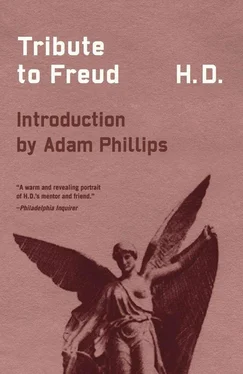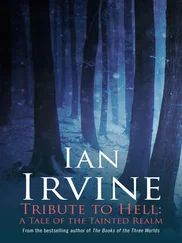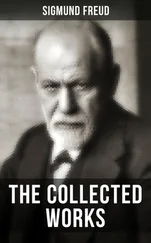I have been frightened, I do not want to mention blood to the Professor. I opened the front door, ran out to welcome my father in the dark and found blood on his head, dripping. . This was soon after we moved from Bethlehem to the Flower Observatory, outside Philadelphia. The cause of my father’s accident always remained a mystery. He might have slipped off the old-fashioned steam tram or the local train engine might have backfired. We were not allowed to see our father for some days. We were afraid he might be dead. When we finally went to his room he was propped up, as I had imagined Havelock Ellis in the dream, but his hair and beard had turned white. It was another father, wax-pale, a ghost.
I think I was ten years old at that time. I had “forgotten” this until I began my work with Miss Chadwick.
I had “forgotten” my father’s accident for thirty-five years.
I try to outline in a detached way the story of the three children finding their father. I qualify my terror of death by saying, “We overheard Mr. Evans, one of our father’s assistants at the Observatory, say it was concussion of the brain.” The Professor waved this aside. “It could not have been concussion,” he said. I did not know whether he was trying to spare me distress, or if he felt I had in some way forced this recital.
Sigmund Freud said at our next session that he saw “from signs” that I did not want to be analyzed.
I had seen a beautiful etching of him in an art-shop, on the Ring.
Today, I went and ordered a copy.
I am sick today, shaken, unnerved, disoriented.
I feel I should discuss my father’s accident and the discovery of this submerged, long-delayed shock.
Yes, it is true, he must see my conflict “from signs.”
How can I tell him of my constant pre-vision of disaster?
It is better to have an unsuccessful or “delayed” analysis than to bring my actual terror of the lurking Nazi menace into the open.
Yes, I was “Buried Alive.”
Is this why my thoughts return to Lawrence?
I can only remember that last book he wrote. The Man Who Died was buried alive.
March 8, Wednesday
I dream of a photograph of an unbearded D. H. Lawrence. I had such a photograph of my father, taken when he was sixteen or seventeen before he went with his brother to the war. There were daguerreotypes of these two brothers, taken when they were a little younger. The older brother was by far the more attractive. But I looked into the reflecting surface of the silver plate of the younger, and I looked out at myself.
I first met Lawrence in August 1914 at the time of the actual outbreak of war; he looked taller in evening-dress. It was the only time I saw this unbearded manifestation of Lawrence. Richard Aldington said afterwards that Lawrence looked like a soldier in mufti.
In my dream, there is a neat “professional” woman with Lawrence and there is a group of children. Is the “professional” woman a sort of secretary? I acted for a short time as secretary to my father.
Lawrence at one time was a school-master and I always had a longing to teach. The children in this dream “class” or family are of assorted sizes; they stand back of Lawrence and the young woman, grouped round a piano.
My mother taught music and painting at one time, at the old Seminary.
Now the children resolve or dissolve into a picture of a number of models of full-rigged ships.
Havelock Ellis’ father was a sea captain and one of my father’s textbooks was Practical Astronomy Applied to Navigation.
I think, “Of course, in England, these children would have the advantage of all those ships.”
But in my dream, I take out a volume from a shelf of Lawrence novels. I open it; disappointed, I say, “But his psychology is nonsense.”
I envied these women who have written memoirs of D. H. Lawrence, feeling that they had found him some sort of guide or master. I envied Bryher her hero-worship of the psychoanalyst Dr. Hanns Sachs. I cannot be disappointed in Sigmund Freud, only I have this constant obsession that the analysis will be broken by death. I cannot discuss this with the Professor. When he first greeted me, he reminded me of Lawrence.
The Professor said to me today, when I entered the consulting room, “I was thinking about what you said, about its not being worthwhile to love an old man of seventy-seven.” I had said no such thing and told him so. He smiled his ironical crooked smile. I said, “I did not say it was not worthwhile, I said I was afraid.”
But he confused me. He said, “In analysis, the person is dead after the analysis is over.” Which person? He said, “It would not matter if I were seventy-seven or forty-seven.” I now remember that I will be forty-seven on my next birthday. On my birthday, for that one day, Lawrence would be forty-seven.
The Professor had said, “In analysis, the person is dead after the analysis is over — as dead as your father.”
I remember Norman Douglas saying, “Just as we’re all getting over this Jesus Christ business, trust another Jew to come along and upset all our calculations.”
For one day in the year, H. D. and D. H. Lawrence were twins. But I had not actually realized this until after his death. He was born September 11, 1885: I was born September 10, 1886.
Stephen Guest brought me a copy of The Man Who Died. He said, “Did you know that you are the priestess of Isis in this book?”
Perhaps I would never have read the book if Stephen had not brought it to me. Actually, I might have had at first a slight feeling of annoyance. I had told friends of a book that I wanted to write, actually did write. I called it Pilate’s Wife. It is the story of the wounded but living Christ, waking up in the rock-tomb. I was certain that my friends had told Lawrence that I was at work on this theme. My first sudden reaction was, “Now he has taken my story.”
It was not my story. George Moore, among others, had already written it. There is the old myth or tradition that Christ did not die on the Cross.
March 8, 3:15 P.M.
My first week with the Professor began on Wednesday, March 1, a Holy Day, Ash Wednesday, March 1933.
Bryher has arranged for three months, twelve weeks. So, measured by the clock dial, I have moved from the XII to the I. Or I should say, I suppose, counting the hours rather than the minutes, that I have moved from I to II. This is my second week with Sigmund Freud.
I concentrate on the minutes, the minutiae of these hours.
This is March, astrologically the House of Sorrow. It is traditionally the House of the Crucifixion. The astrological months however are not divided exactly as the calendar months. The last week roughly of each calendar month overlaps or begins the new astrological month. So the end of March sometimes coincides with the spiritual vernal equinox, the resurrection.
My father studied or observed the variable orbit of the track of the earth round the sun, variation of latitude, he called it. He spent thirty years on this problem, adding a graph on a map started by Ptolemy in Egypt. The Professor continues a graph started by the ancestors of Ptolemy.
Some call this house, Pisces or the Fishes, the House of Secret Enemies, but I have seen reference to it as the House of Mysteries.
But we must not talk astrology. In that, at least, my father and Sigmund Freud agree. Nevertheless, in spite of them, or to spite them, I find enchanting parallels in the Ram, the Bull, the Heavenly Twins. We have Yofi, Leo certainly.
We have other minutiae, the images on his table, Osiris the sun in his twelve manifestations, as he journeys through the sky, as well as the bronze Isis that he showed me — his companion.
Читать дальше











